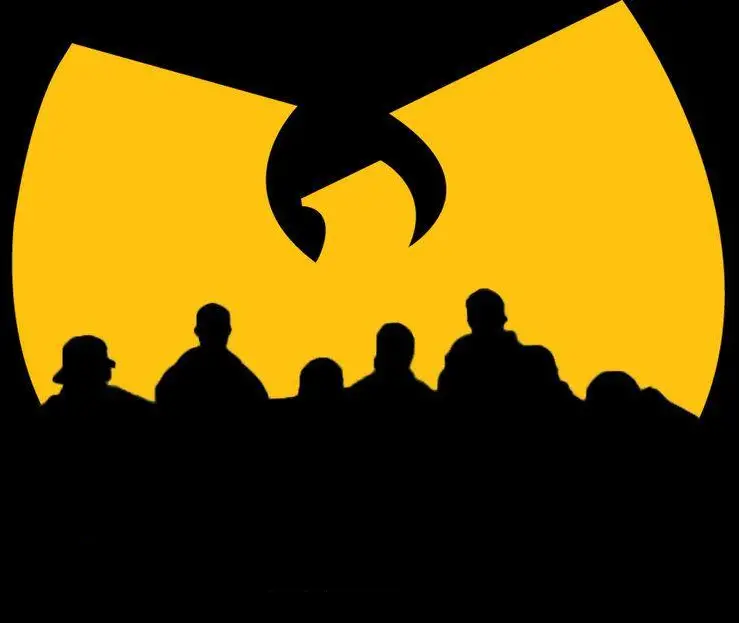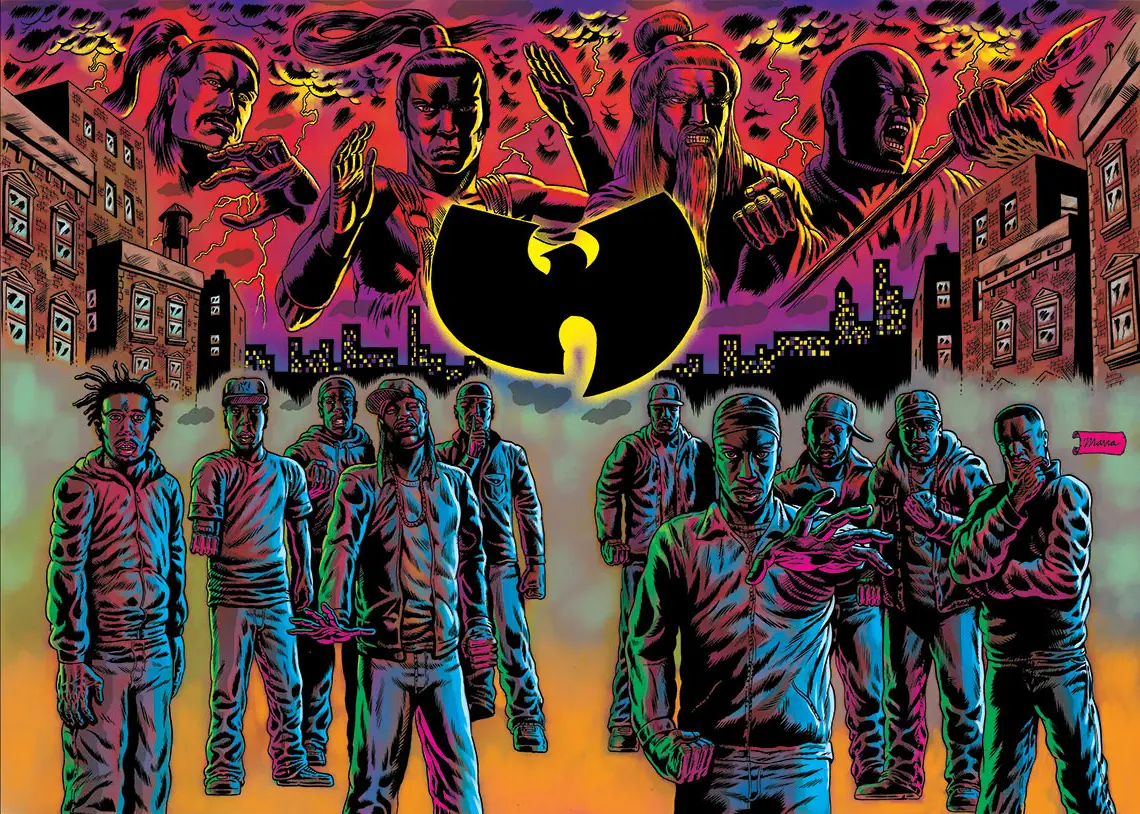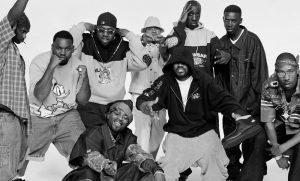The Wu-Tang Clan, they are one of the most influential hip-hop groups in all history. They are known for their unique music, their complex lyrics, and their powerful social commentary. Their debut album, Enter the Wu-Tang (36 Chambers), is considered a classic and it has been certified quadruple platinum by the RIAA. The Wu-Tang Clan, they also have had a major impact on popular culture, with their members appearing in films, television shows, and video games.
There is no doubt that the Wu-Tang Clan was one of the most influential hip-hop groups in the music industry. However, their history is one of the least discussed topics. Here, I am going to reveal their interesting history and hidden facts to you.
In this article, I will explore the history of the Wu-Tang Clan and their impact on hip-hop culture. I will also share some personal insights about my own experiences with the group. First I will bring the information about what Wu Tang was before they were famous. Then how they created their clan, evolution, discography, conflicts and story Wu Tang Clan.
- Wu Tang clan: before they were famous
- Early Days of Wu-Tang Clan
- Golden days of Wu tang Clan
- Legal troubles of Wu Tang Clan
- Present Days of Wu Tang Clan
Wu-Tang clan: before they were famous
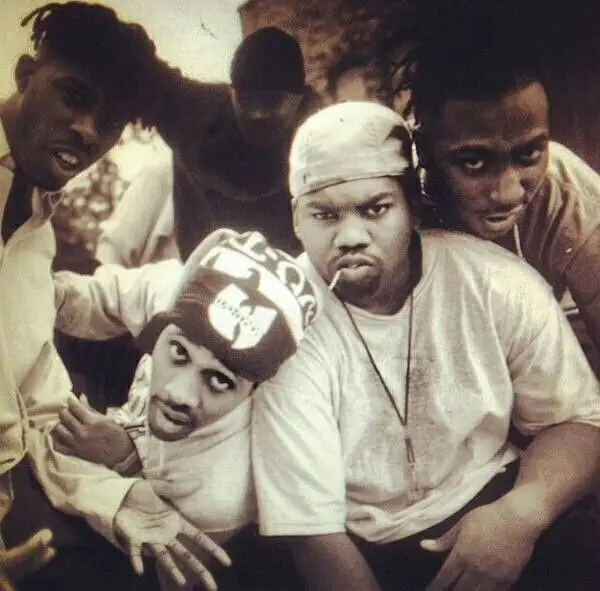
In the late 1980s A group of 3 Cousins called Robert Diggs, Gary Grice, and Russell Jones decided to create a rap group named “Force of the Imperial Master”, also known as the “All in Together Now Crew”. Grice was known as The Genius, Diggs as Prince Rakeem or The Scientist, and Jones was known as The Specialist. The trio was never signed to a major label, but they did get the notice of the New York City rap scene, and at that time artist Biz Markie recognized them.
Later The Genius and Prince Rakeem were signed to different record labels by 1991. On Cold Chillin’ Records, The Genius released “Words from the Genius (1991)”, and Prince Rakeem released “Ooh I Love You Rakeem (1991)” on Tommy Boy Records. Unfortunately, their labels quickly dropped both of them. After “The Genius” was renamed as “GZA”, while “Prince Rakeem” was renamed as “RZA” and “The Specialist” changed his identity as “Ol’ Dirty B”.
After that time RZA began working with Dennis Coles, later known as Ghostface Killah, a rapper from Staten Island’s Stapleton Houses. The two decided to form a hip hop group with an attitude inspired by “Eastern philosophy learned through kung fu movies, Five Percent Nation teachings learned on the streets of New York, and comic books.” The Wu-Tang Clan was formed in late 1992, with RZA serving as the group’s leader and producer. After seeing the movies Shaolin and Wu-Tang, RZA and Ol’ Dirty B came up with the name for the group.
Early Days of Wu-Tang Clan
As the RZA, GZA, Ol’ Dirty B, and Ghostface Killah there are other local MCs that became a part of the crew including Method Man, Raekwon, U-God, Inspectah Deck, and Masta Killa. The nine rappers agreed to build an artistic and financial community, and the Wu-Tang Clan would become its own enterprise rather than just a group. To accomplish so, they chose to start with a collaborative effort and then spread the word through solo projects, gaining more partners and getting stronger and more influential in the process. If you interested in get more information about each individual members you can read our Wu Tang Clan members article.
The hard-hitting “Protect Ya Neck,” the Wu-Tang Clan’s first single, was released on their own independent label and became an underground hit. Record labels needed to give them pricey contracts soon after. The group held out until they were offered a deal that allowed each member to record solo albums for whichever label he wanted, effectively making each rapper a free agent. The band signed a deal with Loud/RCA, and their debut album, Enter the Wu-Tang (36 Chambers), was released in November 1993.
Golden days of Wu-Tang Clan
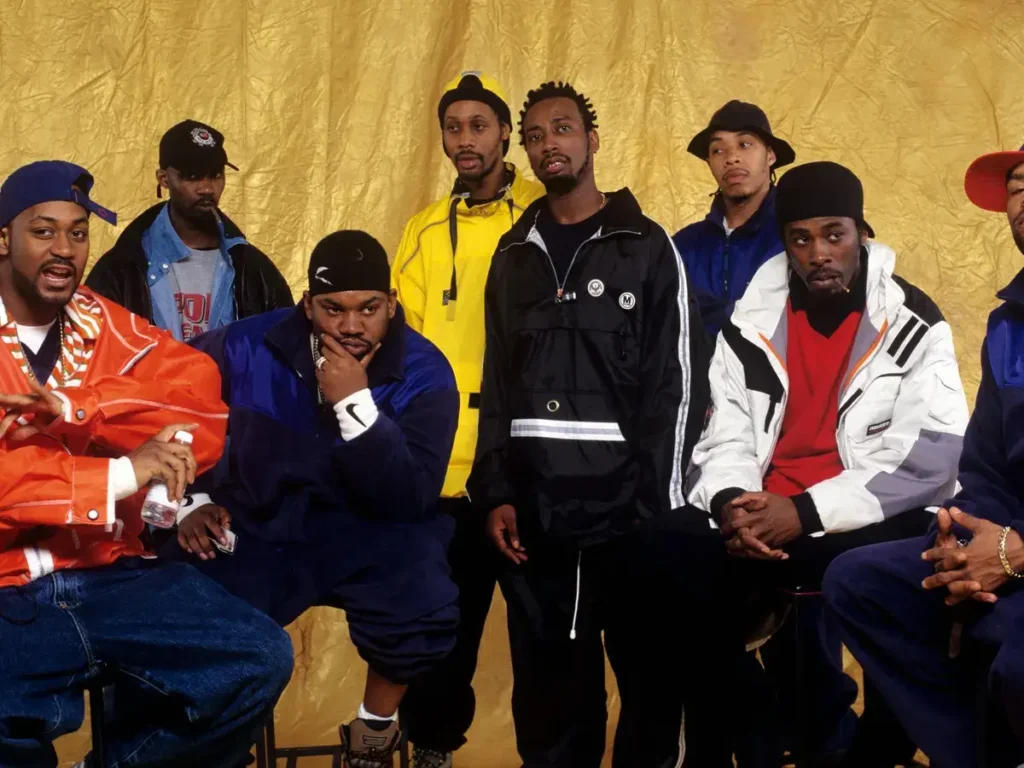
Enter the Wu-Tang (36 Chambers) was critically acclaimed as well as commercially successful; yet, its financial success was earned through time rather than overnight. The single album “C.R.E.A.M.” from early 1994 was the one that pushed Wu Tang Clan to fame and earned them a cult status. As a result of the popularity of “C.R.E.A.M.,” five of the group’s members — GZA, RZA, Raekwon, Method Man, and Ol’ Dirty B — landed solo contracts. RZA was the first to return to the studio, this time as a member of the Gravediggaz, a group he created; the group included “De La Soul” producer “Prince Paul”, “Stetsasonic’s Frukwan”, and “Brothers Grimm’s Poetic”. The Gravediggaz album “6 Feet Deep” was released in August 1994 and was a huge success.
Method Man was the first Wu-Tang member to make off as a solo artist. “Tical”, the first official Wu-Tang solo album, was released in November 1994. Return to the 36 Chambers, released in March 1995 on Elektra Records, was Ol’ Dirty B’s follow-up to Method Man’s breakthrough triumph. The record went gold because of the songs “Brooklyn Zoo” and “Shimmy Shimmy Ya.” It sounded the most like entering the Wu-Tang of all the solo albums, although this did have a more apparent comic bent thanks to Ol’ Dirty’s hysterical vocals. Inspectah Deck’s debut solo track is on the soundtrack of the “Tales from the Hood” movie.
Raekwon’s “Only Built 4 Cuban Linx” and “GZA’s Liquid Swords” were released later in 1995, and both were critically regarded as Wu-Tang albums. In August 1995, Raekwon released his album on Loud/RCA, which contained major contributions from Ghostface Killah (a total of 12 songs) and gave him his greatest recognition yet. Geffen Records released GZA’s solo album in November 1995.
The soundtrack of “Don’t Be a Menace to South Central While You’re Drinking Your Juice in the Hood” movie featured Ghostface Killah’s first solo track, “Winter Warz,” in February 1996. In June of 1997, the Wu-Tang Clan reformed and released their second album, Wu-Tang Forever, a double CD. The album debuted at number one on the charts, selling over 600,000 copies in its first week alone, and rapidly produced the smash single “Triumph.” Cappadonna (born Darryl Hill), a guest associate who’d appeared on “Only Built 4 Cuban Linx” and “Ironman” and would later become the tenth member of the Wu-Tang Clan, made several contributions. The band went on a long tour in promotion of the album, engaging in a few small legal conflicts along the way.
Legal troubles of Wu-Tang Clan
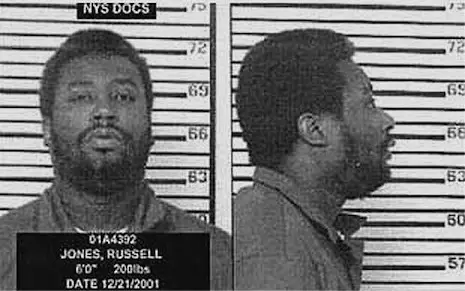
In 1998, Ol’ Dirty B started acting strangely and got into trouble with the law a lot, making the news regularly. At the Grammy Awards in February, he interrupted Shawn Colvin’s speech to complain about his rap group not winning an award. After that, he said he wanted to change his name to Big Baby Jesus. Over the next year and a half, ODB went to jail for a bunch of different things, like fighting, stealing, making threats, wearing armor even though he wasn’t allowed, having cocaine, and not showing up for court. Also, in early 1999, people accused the whole rap group of running guns between Staten Island and Steubenville, Ohio, but they couldn’t prove it was true.
In late 1998, the Wu-Tang Clan had gone through a phase of individual projects during legal troubles. RZA took a step back during this period and mostly handed over production duties to his colleagues. Nevertheless, he dropped his first solo album, “RZA as Bobby Digital in Stereo,” with a soundtrack vibe in November 1998 on V2. Method Man also released his second album, “Tical 2000: Judgement Day,” which reached number two on the charts that same month. In June 1999, “RZA Hits,” a remarkable compilation of singles covering the first Wu-Tang album and the initial set of solo albums from 1994-1995, hit the shelves. Just a week later, GZA’s second album, “Beneath the Surface,” was released.
September saw a wave of new Wu-Tang music, including Ol’ Dirty Bastard’s “N Please,” which dropped while the rapper was in rehab. Method Man teamed up with Redman for their highly acclaimed duo album, “Blackout,” and Inspectah Deck released his first solo album, “Uncontrolled Substance,” on Relativity. U-God, another Wu member, released “Golden Arms Redemption” in October, and Raekwon followed with “Immobilarity” the following month. In January 2000, Ghostface Killah released his well-received second album, “Supreme Clientele.”
However, these second rounds of Wu-Tang solo albums didn’t garner as much attention, neither critically nor commercially. While Method Man and Ghostface Killah maintained their popularity as solo artists, the Wu-Tang brand faced challenges like inconsistency, overexposure (they ventured into clothing, video games, comics, and more), and a continuous stream of musical releases that even die-hard fans struggled to keep up with.
During this time, RZA was tapped by independent filmmaker Jim Jarmusch to create a soundtrack for his acclaimed film “Ghost Dog: The Way of the Samurai,” released in early 2000. Apart from that, the Clan reunited for a new album in 2000 but remained relatively quiet for the rest of the year, except for Ol’ Dirty Bastard, who continued to experience personal issues. He ended up serving time in a California jail for violating probation, but in an unexpected turn of events, he appeared on stage in October, escaped, and spent a month evading the law. Fans were surprised to see him onstage at the Clan’s new album release, “The W,” which came out with considerably less fanfare in November 2000. However, after his surprise performance, Ol’ Dirty B managed to leave the venue but was soon apprehended by the police on cocaine possession charges. In April 2001, he reached an agreement with authorities and was sentenced to 2 to 4 years in jail.
In 2001, RZA released his second Bobby Digital album, “Digital Bullet,” and Ghostface Killah and Cappadonna released solo albums in November. Yet, there were no full sets of individual tracks between Wu-Tang albums during this period. Apart from various solo projects, the Wu-Tang Clan only released one live album over the next five years, “Disciples of the 36 Chambers,” in 2004. This project was one of the last places where fans could hear from Ol’ Dirty Bastard before he tragically passed away from a heart attack in November 2004.
In early 2007, Nature Sounds published “Mathematics compiled,” a collection of new remixes and hard-to-find, previously unreleased songs from the Clan and some of their collaborators. This release was a precursor to the Clan’s upcoming album, “8 Diagrams.”
Present Days of Wu Tang Clan
Although several members released solo albums, the Clan remained relatively inactive until 2011 when the Wu-related compilation “Legendary Weapons” was released, featuring new songs from the entire clan. The Clan also announced that they were working on a new studio album for their 20th anniversary, set to be released in 2013. However, when 2013 came and went, the album’s development was hindered by a feud between Raekwon and RZA over the album’s artistic direction. They eventually reconciled, and the album was completed in 2014, titled “A Better Tomorrow” and released by Warner Bros.
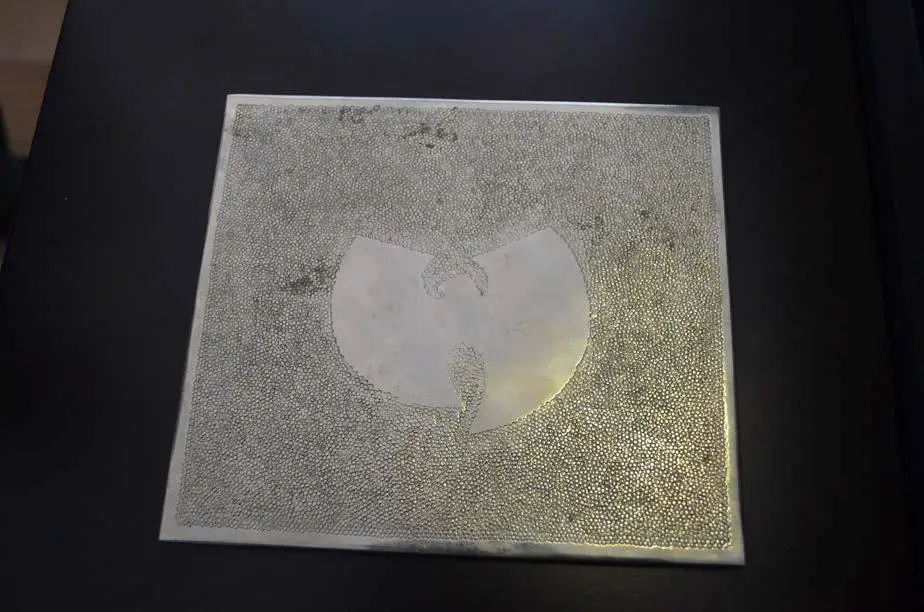
In the same year, the Wu-Tang Clan made history by claiming to have created a secret album called “Once Upon a Time in Shaolin,” of which only one copy would be pressed and sold as a unique artwork, enclosed in a custom-made hand-carved nickel and silver box, to the highest bidder. The Clan also released “People Say” featuring Redman and contributed “Don’t Stop” to the Silicon Valley soundtrack. In May of that year, they released the soundtrack EP “Wu Tang Clan : Of Mics and Men.” How is the story of Wu Tang Clan. Please comment your valuble insights below. Also you can try our Wu Tang Clan Name generator to create cool rapper names.
